Bus Ticket Billing Machine
Product Details:
- Power Supply Bettary
- Color Black
- Voltage 220-240 Volt (v)
- Usage Industrial
- Current 190-240V Volt (v)
- Product Type billing
- Weight As per available Grams (g)
- Click to View more
Bus Ticket Billing Machine Price And Quantity
- 1 Piece
- 8500 INR/Unit
Bus Ticket Billing Machine Product Specifications
- 4/8/12 MB Ext To 2GB Data memory Gigabyte (GB)
- no
- 2 inch
- Bettary
- 220-240 Volt (v)
- Black
- Industrial
- 190-240V Volt (v)
- Manual
- As per available Grams (g)
- billing
- yes
- 128*64 Graphkal LCD With backlight Inch (in)
Bus Ticket Billing Machine Trade Information
- yes
- Cash in Advance (CID)
- 10 Piece Per Month
- 2-7 Days
- Yes
- If order is confirmed we will reimburse the sample cost
- parfact packing
- Asia
- All India
- If you're building your own certification platform, I can help you: Draft the curriculum Build a learning website (LMS) Create exams & printable certificates Set up e-commerce + SEO for it
Product Description
Basic Details of a Bus Ticket Billing Machine:
1. Purpose:
-
Ticket Issuance: The primary function of a bus ticket billing machine is to generate and issue bus tickets to passengers. This includes specifying travel details such as the route, destination, fare, and travel date.
-
Fare Collection: The machine collects the fare from passengers, either through cash, credit/debit cards, or digital wallets.
-
Data Management and Reporting: The machine tracks the number of tickets sold, total fare collection, and other financial data. This information is vital for daily sales reports, accounting, and auditing.
-
Travel Monitoring: In some systems, bus ticket billing machines are connected to a centralized system, allowing bus operators or transport authorities to monitor ticket sales, manage schedules, and track passenger counts.
2. Key Features:
-
User-Friendly Interface: Most bus ticket billing machines have a simple and intuitive interface, with keypads or touchscreen displays for easy ticket generation and fare calculation.
-
Cash and Digital Payments: The machines can accept cash, credit/debit card payments, and digital wallet payments (e.g., Google Pay, Apple Pay) for convenience.
-
Ticket Printing: The machine is typically equipped with a thermal printer to print tickets immediately after a transaction. Tickets include details like:
-
Route/Trip Information
-
Passenger Name (in some cases)
-
Fare and Date
-
Ticket Serial Number
-
-
Barcode/QR Code Support: Some advanced machines generate barcodes or QR codes on tickets for easy scanning and validation by conductors or ticket controllers.
-
Fare Calculation: The machine is pre-programmed with fare structures, so the correct fare is calculated based on the route, distance, or passenger type (e.g., student, senior citizen).
-
Multi-Ticket Support: Bus ticket billing machines can handle multiple types of tickets (e.g., single journey, return, weekly passes) and manage different fare categories based on passenger type.
-
Cash Management: Some models have built-in features for cash management, such as the ability to calculate change automatically and manage cash flow.
-
Receipt Generation: After processing a payment, the machine generates a receipt for the passenger as proof of purchase.
-
Real-Time Syncing (Cloud Integration): Some machines offer cloud-based data synchronization, allowing ticket data to be updated in real-time for monitoring and analysis.
-
Inventory Management: For systems offering bus passes or tickets in bulk, the machine can track and manage inventory for different ticket types.
3. Applications:
-
Public Transport Systems: Bus ticket billing machines are widely used in public transportation systems to sell tickets for individual trips or for long-term passes (weekly/monthly).
-
Private Bus Operators: Private bus companies use ticket billing machines to manage ticket sales, especially for intercity or interstate travel.
-
Tourist and Shuttle Services: These machines are useful for tourist buses, shuttle services, or special event buses that require ticketing and fare management.
-
Bus Terminals and Stations: Bus ticket billing machines are often stationed at bus terminals or station counters where passengers purchase tickets before boarding.
4. Advantages:
-
Increased Efficiency: The machine speeds up the ticketing process by automating fare calculations, ticket issuance, and receipt printing.
-
Accurate Record-Keeping: Automated data capture ensures accurate records of all transactions, which simplifies accounting, reporting, and auditing.
-
Reduced Human Errors: By automating ticketing and fare calculation, these machines reduce the chances of human errors in pricing or issuing tickets.
-
Multi-Payment Options: These machines cater to a wide range of passengers by accepting various forms of payment (cash, card, and digital wallets).
-
Customer Convenience: Passengers benefit from faster, more efficient ticketing, minimizing wait times at bus stations.
-
Integration with Centralized Systems: Some machines offer real-time data syncing, allowing bus operators to monitor ticket sales, analyze patterns, and manage operations more effectively.
-
Accountability and Transparency: Printed tickets and receipts improve transaction transparency and provide passengers with proof of purchase, which is essential for accountability.
5. Challenges:
-
Initial Cost: The upfront cost of purchasing bus ticket billing machines, especially advanced models with card payment and cloud integration capabilities, may be high for smaller operators.
-
Technical Maintenance: Like any electronic system, the ticketing machine requires regular maintenance and troubleshooting to ensure smooth operation. Malfunctions can lead to delays or loss of ticket sales.
-
Training: Operators or bus conductors may need training to efficiently use the ticketing machine and handle troubleshooting if issues arise.
-
Connectivity Issues: For cloud-integrated systems, network connectivity issues may cause delays in data syncing or affect ticketing operations if not addressed.
-
Data Security: Storing passenger and payment data requires strong security measures to protect against data breaches and fraud.
6. Components of a Bus Ticket Billing Machine:
-
Display Screen: The interface where operators can input data, view information, and issue tickets.
-
Keyboard or Touchscreen: For inputting details like the route, destination, and passenger type.
-
Payment System: Includes card readers for credit/debit cards, cash acceptors, and mobile payment options.
-
Thermal Printer: Used for printing tickets and receipts.
-
Battery: Many ticketing machines are battery-operated for portability and continuous use in the field or on buses.
-
Connectivity Module: Some machines are equipped with Wi-Fi or cellular data for cloud-based data synchronization.
-
Software: Embedded or connected software that calculates fares, generates tickets, and manages transaction data.
7. Installation and Maintenance:
-
Installation: Bus ticket billing machines are easy to install at bus terminals, station counters, or even on buses. They typically require basic setup for fare structures, route configurations, and payment methods.
-
Maintenance: Regular cleaning, software updates, and hardware maintenance are necessary to keep the machine operating effectively. This includes maintaining the printer, payment systems, and battery life.

Price:
- 50
- 100
- 200
- 250
- 500
- 1000+

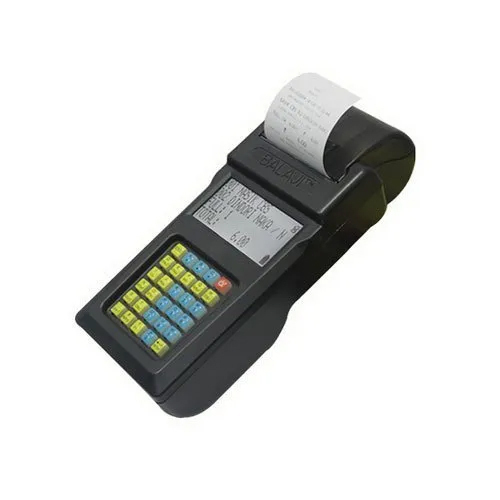

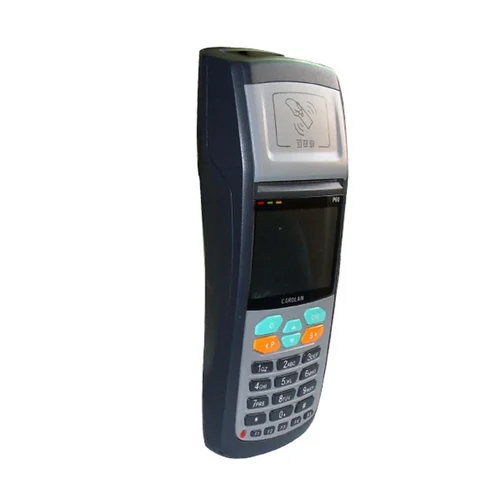
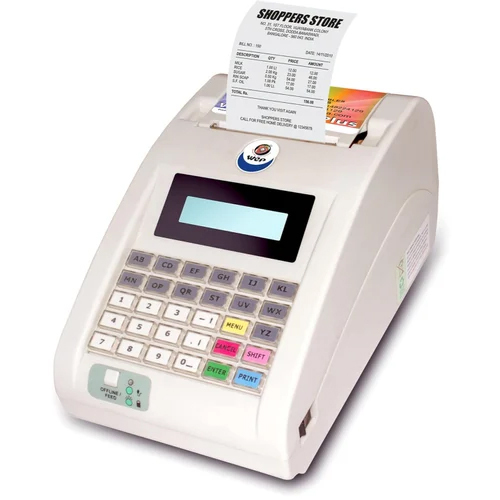
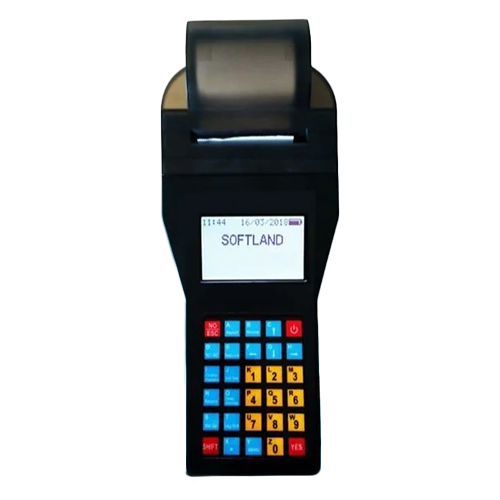
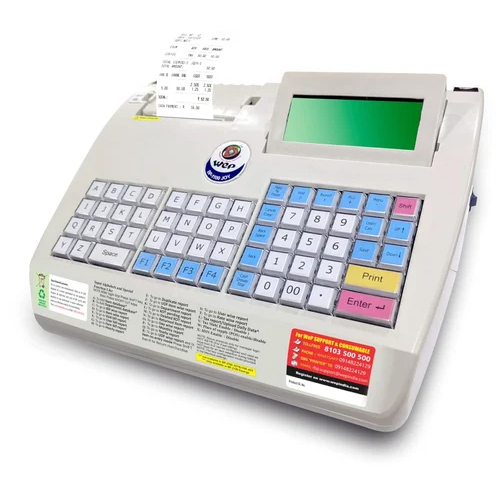


 Send Inquiry
Send Inquiry Call Me Free
Call Me Free